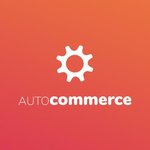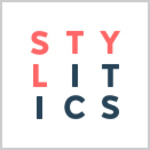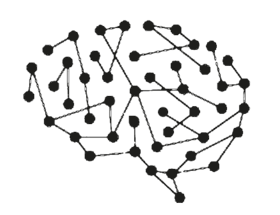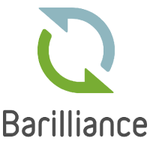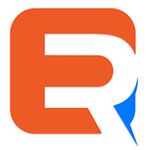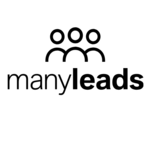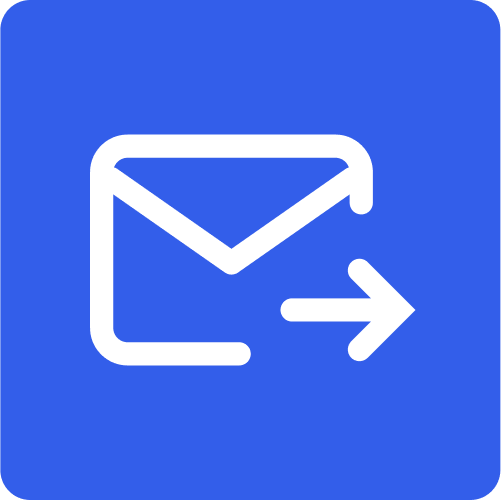Yes, personalization software can be accessible from multiple devices and platforms. Personalization software is now compatible with multiple operating systems and accessible from PCs, laptops, tablets, and smartphones, thanks to technological advancements and the rise of cloud-based solutions. This provides consumers with a seamless and personalized experience regardless of the device or platform they are using, making it a versatile and useful tool for both organizations and people.
List of 20 Best Personalization Software
Eventable is solution designed to help businesses connect with their customers by creating personalized calendar events and reminders. Trusted by top brands, it boosts customer attendance, drives sales, and optimizes the success of new launches. Elev...Read More Eventable
GeoFli is a platform designed to enhance businesses marketing strategies through personalized website content based on location. With seamless integration and user-friendly workflows, GeoFli allows for effective engagement with targeted audiences. Di...Read More GeoFli
Tapad is a leading cross-device identity solution that empowers businesses to connect with consumers on a deeper level. Our advanced global identity graph enables precise targeting, accurate measurement, and personalized engagement in the ever-changi...Read More Tapad
Marketing Factory is a software for maximizing the potential of your customer data. Effortlessly harness valuable insights to create targeted marketing strategies that integrate seamlessly with your existing systems. Elevate your business and drive c...Read More Marketing Factory
Dynamic Yield - a personalization tool that tailors content, products, and promotions to each customers unique preferences, leading to enhanced interaction and conversion rates. This powerful platform seamlessly integrates with your business, boasts...Read More Dynamic Yield
Findify is a AI-driven solution that takes e-commerce to the next level. With personalized search, intelligent collections, and custom recommendations in real-time, this platform boosts revenue by up to 30%. Seamlessly integrate with Shopify and BigC...Read More findify
Matej is aHR solution that revolutionizes recruitment, employee training, and market analysis. With its comprehensive features, employers can easily identify and engage top talents, streamline hiring procedures, and foster continuous learning to effe...Read More Matej
AutoCommerce is a e-commerce software trusted by businesses of all sizes. With its advanced features, seamless functionality, and robust security measures, it provides the perfect platform for secure online transactions. Let AutoCommerce handle your...Read More AutoCommerce
Stylitics, the premier styling tool designed to revolutionize retail interactions. Our cutting-edge platform utilizes advanced technology to provide personalized outfit recommendations and bundling options for top retailers, elevating the customer ex...Read More Stylitics
RichRelevance is a personalization software designed to enhance the customer journey for leading brands. Renowned for its exceptional performance, it offers a range of solutions for personalized recommendations, search, and content, delivering a seam...Read More RichRelevance
WriterBot is a AI-powered solution for simplifying eCommerce content creation. With its advanced technology, WriterBot seamlessly generates product descriptions, blog posts, and social media content while optimizing SEO and driving organic traffic to...Read More WriterBot
Involve.me is a software that harnesses the power of artificial intelligence to aid businesses in creating interactive forms, surveys, quizzes, and calculators. With its fully customizable templates and seamless integrations, it enhances user engagem...Read More involve.me
Geo Targetly is a top-performing geo-targeting platform created to boost user engagement and drive conversions. Its advanced features and easy integration make it the perfect choice for businesses with a global audience. With capabilities such as vis...Read More Geo Targetly
Barilliance is an advanced eCommerce personalization platform that utilizes AI-driven recommendations and dynamic personalization to enhance customer engagements. It easily integrates with existing technological systems, resulting in increased sales...Read More Barilliance
Expertrec Search Engine enhances the search function of your eCommerce and content websites. Its intelligent search bar ensures that customers can easily find products and content, even if they misspell words. In just seconds, customers can find what...Read More Expertrec Search Engine
Kameleoon is a platform that provides a range of powerful tools for web experimentation, personalization, and feature management. Utilizing advanced AI technology, it empowers teams to achieve growth and deliver exceptional customer experiences. Its...Read More Kameleoon
the Finiite API - an advanced AI-based solution that accurately identifies your customers skin type using just a selfie. Say farewell to time-consuming form filling and email submissions. Experience increased customer confidence and product visibilit...Read More Finiite API
Boostools is a software designed to enhance productivity through its intuitive interface, advanced automation capabilities, and seamless integrations. This dynamic tool streamlines workflows, optimizes task management, and provides insightful data an...Read More Boostools
Personalize.cc by 500apps: solution for creating personalized content that drives user engagement. Our all-in-one software allows you to easily customize images, videos, and emails to deliver targeted information and boost response rates. With featur...Read More Personalize.cc by 500apps
A state-of-the-art Personalization Engine, driven by AI technology. This cutting-edge platform enables retailers to closely track customer interactions and create personalized jAneys for every shopper. With its advanced algorithms, A Personalization...Read More Personalization Engine
Learn More About Personalization Software
- What Is Personalization Software?
- What Are The Recent Trends In Personalization Software?
- Benefits Of Using Personalization Software
- Important Factors To Consider While Purchasing Personalization Software?
- What Are The Key Features To Look For In Personalization Software?
- Why Do Businesses Need Personalization Software?
- How Much Time Is Required To Implement Personalization Software?
- What Is The Level Of Customization Available In Personalization Software?
- Which Industries Can Benefit The Most From Personalization Software?
- Conclusion
What Is Personalization Software?
Personalization software is a powerful tool that enables organizations to adjust their marketing, message, and overall user experience to individual consumers' interests and behaviors. With the rise of digital marketing and e-commerce, customization has become critical for businesses to differentiate themselves and provide a tailored, engaging experience to their customers.
Personalization software uses data and algorithms to collect and analyze client data such as browsing history, purchase history, and demographics in order to understand their interests and behaviors. This data is then utilized to generate personalized content, recommendations, and offers for each consumer. One of the primary advantages of personalization software is the ability to boost client engagement and conversion rates.
Businesses may improve the consumer experience by offering relevant and personalized information, resulting in improved conversion rates and brand loyalty. Furthermore, personalization software can help businesses save time and money by automating the creation and delivery of individualized content. This not only streamlines the marketing process, but also enables businesses to reach a broader audience with more personalized messaging.
When choosing customization software, look for features like segmentation, real-time data analysis, and A/B testing capabilities. These features will allow organizations to target specific client categories, track the performance of individualized marketing, and iteratively improve their customization strategies.
What Are The Recent Trends In Personalization Software?
Personalization software has grown and evolved significantly in recent years, driven by consumers' increasing need for tailored experiences. When looking for personalization software for your organization, examine the following major trends:
1. AI And Machine Learning (ML) Integration: One of the most visible developments in personalization software is the combination of AI and ML capabilities. These technologies enable software to collect and analyze vast volumes of data in order to provide each user with a unique and personalized experience. This leads to higher consumer engagement, conversion rates, and, ultimately, income.
2. Omnichannel Personalization: With the proliferation of touchpoints, customers today want a unified and consistent experience across all channels. Personalization software has grown to meet this demand by providing omnichannel personalization, which enables organizations to give tailored experiences throughout a variety of channels such as websites, email, mobile apps, and more.
3. Real-Time Personalization: In today's fast-paced environment, customers demand real-time interactions and tailored experiences. Personalization software has responded to this desire by offering real-time personalization, which collects and analyzes client data in real time to deliver individualized content and recommendations immediately.
4. Contextual Personalization: Contextual personalization enhances personalization by taking into account not only client data but also their current context. This could include characteristics such as location, weather, and time of day. This form of customisation allows clients to receive extremely relevant and timely content, improving their overall experience.
5. Social And Behavioral Personalization: Personalization software has used social and behavioral data to gain a better understanding of the customer. This information may include social media activity, previous purchases, internet habits, and more. Businesses can use this data to build highly targeted and tailored experiences that resonate with their customers.
Benefits Of Using Personalization Software
Personalization software enables organizations to provide a more specialized and individualized experience to their customers. It uses customer data and behavior to provide tailored content and recommendations, which leads to increased engagement and conversion rates.
Let's explore, we'll look at the main benefits of adopting personalization software and how it can help your organization.
1. Improves Client Experience: One of the primary advantages of employing personalization software is improved customer experience. Customers feel more valued and understood by the business when it offers individualized recommendations and information, which leads to higher happiness and loyalty. This can lead to repeat sales and positive word-of-mouth marketing.
2. Increases Conversion Rates: Personalization software may greatly enhance conversion rates by delivering relevant and individualized content to clients. According to research, tailored product recommendations can boost conversion rates by 26% since customers are more likely to buy things that match their interests and needs.
3. Maximises Marketing Efforts: Personalization software uses client data to generate personalized marketing efforts. This means that businesses may target the correct audience with the right message at the right moment, resulting in more effective marketing campaigns. This not only saves time and resources, but it also increases the return on investment (ROI).
4. Improves Customer Retention: Personalization software not only helps to attract new consumers, but it also plays an important part in client retention. Businesses that provide a personalized and outstanding experience can strengthen client connections and enhance customer retention. This can result in long-term loyalty and advocacy for the brand.
5. Boosts Cross-Selling And Upselling Opportunities. Personalization software allows firms to examine consumer data to uncover cross-selling and upselling opportunities. Businesses can boost their average order value and, ultimately, income by offering complimentary items or upgrades based on their customers' preferences.
6. Saves Time And Resources: Manual customisation can be time consuming and resource intensive. Personalization software streamlines the process, allowing organizations to focus on more important responsibilities. This saves time and resources while also ensuring consistency in personalization efforts across several channels.
Important Factors To Consider While Purchasing Personalization Software?
When it comes to selecting the best personalization software for your company, there are various variables to consider. These criteria extend beyond the software's pricing and functionality, and can have a substantial impact on its effectiveness and overall return on investment.
1. Your Unique Requirements: Identifying your specific requirements is the first step in selecting the appropriate customisation software. What are your business objectives, target audience, and current customer information? Understanding your aims and criteria will help you narrow down your selections and select software that meets your needs.
2. Data Management Capabilities: Personalization software uses data to generate tailored experiences for customers. As a result, it is critical to assess the data management capabilities of any software you are evaluating. Can it efficiently collect, store, and analyze client data? Does it interact with your current CRM or other data sources?
3. Segmentation And Targeting Capabilities: To achieve effective personalization, you must be able to segment and target your audience based on demographics, behavior, and preferences. Look for software that allows you to establish dynamic customer segments and send them personalized communications and offers.
4. Cross-Channel Personalization: Personalization should not be restricted to a single channel. Your clients engage with your brand through a variety of touchpoints, including email, website, social media, and mobile. Choose software that will allow you to provide consistent and unified tailored experiences across all channels.
5. AI And Machine Learning Capabilities: AI and machine learning are critical components of personalization software because they enable automated and real-time personalization at scale. Consider the software's AI and machine learning capabilities, and how they can help with your personalization efforts.
6. User-Friendly Interface: The program you select should be simple to use and navigate, especially for non-technical individuals. A clunky UI might impede the customizing process and make it difficult for your team to carry out campaigns properly.
7. Integration With Other Tools And Platforms: Your personalization software should be compatible with your current tools and platforms. Whether it's your CMS, email marketing software, or e-commerce platform, integration should be seamless to prevent data flow delays.
8. Customer Support And Training: Implementing customized software can be a complicated process, and technical difficulties may arise along the way. Look for a provider who provides good customer service and training tools to guarantee a smooth transition and effective usage of the program.
What Are The Key Features To Look For In Personalization Software?
When it comes to personalization software, there are a few essential characteristics that purchasers should consider to guarantee they are selecting the best option for their needs.
These aspects may differ depending on the buyer's individual use case and aims, but some common considerations to keep in mind are:
1. Data Collection And Segmentation Capabilities: Personalization is primarily reliant on gathering and evaluating information about your target audience. Look for software that can efficiently collect and categorize data from a variety of sources, including website interactions, email campaigns, and client profiles.
2. Machine Learning And AI Capabilities: As personalization advances, the usage of machine learning and artificial intelligence becomes more critical. Look for software that takes advantage of these technologies to better analyze and predict user behavior and preferences.
3. Targeting And Delivery Options: The ability to target particular groups of your audience and provide personalized information and experiences is critical. Look for software that provides a variety of targeting and distribution choices, including personalised product suggestions, dynamic content, and email customisation.
4. A user-Friendly Interface: In order to effectively deploy and manage personalization, you will require software that is simple to use and navigate. Look for a user-friendly interface that allows you to effortlessly create and maintain tailored experiences without requiring sophisticated technological knowledge.
5. Integration Capabilities: Personalization is most effective when combined with other marketing tools and systems, such as your website, CRM, and email marketing platform. Look for software that supports seamless integration to provide a smooth setup and operation.
6. Advanced Reporting And Analytics: It is critical to track and evaluate the effectiveness of your personalization initiatives. Look for software that has comprehensive reporting and analytics capabilities, such as the ability to measure critical metrics like conversion rates and engagement levels.
Why Do Businesses Need Personalization Software?
Personalization software has emerged as a crucial tool for organizations of all kinds in today's competitive industry. This software enables organizations to provide tailored experiences to their clients, creating a smooth and customized journey that not only boosts customer loyalty but also generates revenue and sales growth. One of the primary reasons why organizations want personalization software is to meet the increased demand for tailored experiences from customers.
With the advent of e-commerce and digital platforms, customers expect firms to understand their specific requirements and preferences. Personalization software allows businesses to collect and analyze client data, including as browsing habits, purchase history, and demographic information, in order to provide individualized experiences. Furthermore, customization software enables firms to provide relevant product recommendations based on consumer data, which can greatly increase sales.
Businesses can enhance conversions and upsells by displaying products that customers are more likely to be interested in, resulting in higher income. Another important feature of personalization software is its capacity to increase customer retention. Businesses can strengthen their relationships with customers by customizing their experiences, making them feel valued and understood. This, in turn, improves consumer satisfaction and loyalty.
A loyal consumer is more likely to not only make repeat purchases, but also to suggest the brand to others, increasing the customer base. Additionally, personalization software can help firms save time and resources. The program uses automated processes and AI-driven algorithms to evaluate and segment clients, provide personalized content and recommendations, and track campaign success. This minimizes the need for manual efforts, allowing organizations to focus on other important activities.
How Much Time Is Required To Implement Personalization Software?
The implementation time for personalization software varies depending on the program and the organization's requirements. However, it normally lasts from a few weeks to a few months. The software's initial setup and configuration might take several weeks because it involves integrating with your website or other digital channels, generating user profiles, and creating personalization rules.
This procedure can be accelerated if the program has pre-built templates or user-friendly interfaces. Following the initial setup, the intricacy of your personalization approach and the amount of data accessible can all have an impact on implementation time. Implementation can be finished in a matter of weeks if you have a clear grasp of your target audience and organized, relevant data.
However, if your personalization plan includes complex capabilities like real-time recommendations, machine learning, and omnichannel personalization, the implementation process may take longer. This is because these features take longer to fine-tune and perfect for optimal effectiveness. It is also critical to evaluate the resources available during the implementation phase.
If your team's bandwidth and experience are restricted, the implementation process may take longer. In this instance, it may be useful to seek expert assistance or training to speed up the process.
What Is The Level Of Customization Available In Personalization Software?
Personalization software allows for varying levels of customisation to meet the needs and tastes of individual users. The level of customisation varies depending on the software and its features, but there are normally three levels: basic, moderate, and advanced. Basic customization options include changing the color palette, adding a company logo, and choosing a pre-designed template.
This level of customization is appropriate for organizations with basic design needs and a modest budget. Intermediate customisation enables more extensive personalization choices, such as tailoring content based on user demographics, activity, and preferences. This level of customization necessitates considerable technical knowledge but can be advantageous for organizations seeking to improve their consumer experience and engagement.
Advanced customization offers the highest level of personalization, enabling businesses to create completely unique and bespoke experiences for their customers. This level of customization frequently entails integrating with third-party data sources, developing sophisticated rules and algorithms, and delivering highly targeted and personalized content via techniques such as artificial intelligence (AI) and machine learning (ML).
Before investing in personalization software, it is critical to assess your company's specific requirements and choose which level of customisation will best meet your objectives and budget. It is essential that you purchase software that allows for flexible and scalable customization to meet future expansion and changes in your business plan.
Which Industries Can Benefit The Most From Personalization Software?
Personalization software is an effective tool that can benefit a variety of sectors. Its ability to collect and analyze client data, as well as personalize the user experience, makes it an essential tool for organizations in today's increasingly competitive market.
Let's explore, we will look at which industries can gain the most from using a personalization software solution.
1. E-commerce: Personalization software can help online companies provide individualized purchasing experiences to their customers. Using data to offer items and promotions that are relevant to each individual, e-commerce enterprises can enhance consumer engagement, retention, and eventually sales.
2. Travel And Hotel: Personalization software has the potential to completely transform the travel and hotel business. Hotels, airlines, and other travel providers can give personalized recommendations and targeted incentives based on client data and interests, resulting in increased conversions and customer satisfaction.
3. Banking And Finance: Personalization software is becoming significant in the banking and finance industries. With the rise of fintech and online banking, financial institutions can employ customization technology to better understand their customers' financial patterns and provide tailored products and services, such as investment alternatives or credit card offers.
4. Media And Entertainment: With the rise of streaming services and online content, media and entertainment organizations can utilize customization software to provide tailored suggestions and recommendations for movies, TV episodes, and music based on client interests and watching habits. This can improve user engagement and loyalty.
5. Healthcare: With the rise of digital health platforms and the demand for more individualized healthcare services, personalization software can be an invaluable resource for healthcare practitioners. Healthcare businesses can improve patient outcomes by evaluating patient data and behavior.
6. Education: Personalization software can also play an important role in the educational sector. Educational institutions can improve student engagement and learning results by personalizing their content and learning experiences.
7. Automotive: Personalization software has the potential to revolutionize the auto industry. Car manufacturers can provide bespoke car configurations and recommendations by evaluating consumer data, resulting in a more individualized and gratifying car purchasing experience.
Conclusion
To summarize, personalization software can tremendously assist organizations by offering a bespoke and individualized experience to their customers. This software, by exploiting consumer data and behavior, can help improve marketing efforts, customer connections, and ultimately generate sales. However, while there are numerous personalization software solutions available, customers must carefully assess their requirements and select a solution that provides comprehensive functionality, customization possibilities, and dependable support.
It is also critical to evaluate cost, integration capabilities, and security measures. By following these tips, customers may ensure that they choose the best personalization software for their business requirements. In today's digital world, businesses can gain a competitive advantage by making the right decision and meeting their customers' ever-increasing expectations.
Personalization Software FAQ's
Can Personalization Software Be Accessed Across Multiple Devices And Platforms?
Is Personalization Software Future-Proof And Adaptable To Emerging Technologies Like AI, Blockchain Or IoT?
Personalization software is intended to adapt and evolve alongside emerging technologies like as AI, blockchain, and IoT. Its adaptability enables it to seamlessly merge with technological improvements, making it future-proof and capable of meeting evolving demands and preferences. With the ability to collect and analyze massive volumes of data, personalization software has the potential to improve user experiences and deliver useful insights in the ever-changing digital landscape.
Is There A Free Trial Offered To Assess Personalization Software Before Committing?
Yes, many personalization software vendors provide a free trial period so that users can evaluate the program before making a commitment. This enables potential customers to examine the software's features and capabilities and assess whether it satisfies their requirements. It also allows them to test the user interface and determine how easy it is to navigate. Providers may give a limited duration or limited feature trial, therefore it is critical to check with the software company for free trial information.
Does Personalization Software Offer Data Security Features And Meet Regulatory Compliance Standards?
Yes, most personalization software suppliers provide data security measures and adhere to regulatory standards such as GDPR and CCPA. They use encryption and other security methods to protect personal data. They also undergo frequent audits and updates to ensure compliance. You can also restrict access to sensitive data using role-based permissions. Overall, personalization software focuses data protection to ensure a secure and compliant user experience.
Can Personalization Software Integrate Seamlessly With Existing Tools And Platforms?
Yes, personalization software can integrate seamlessly with existing tools and platforms. This is possible through APIs and integrations, allowing for a smooth flow of data and information between different systems. This ensures that all data is centralized and enables the personalization software to utilize the data for targeted and customized experiences. This integration capability also allows for the personalization software to work alongside other marketing and analytics tools, further enhancing its effectiveness and impact.








